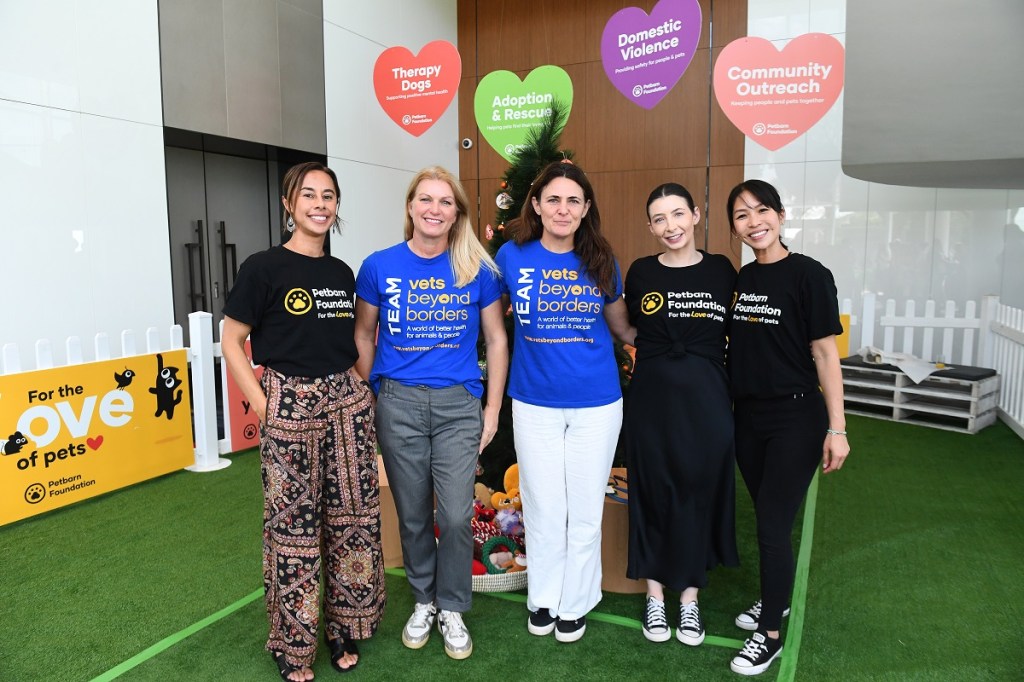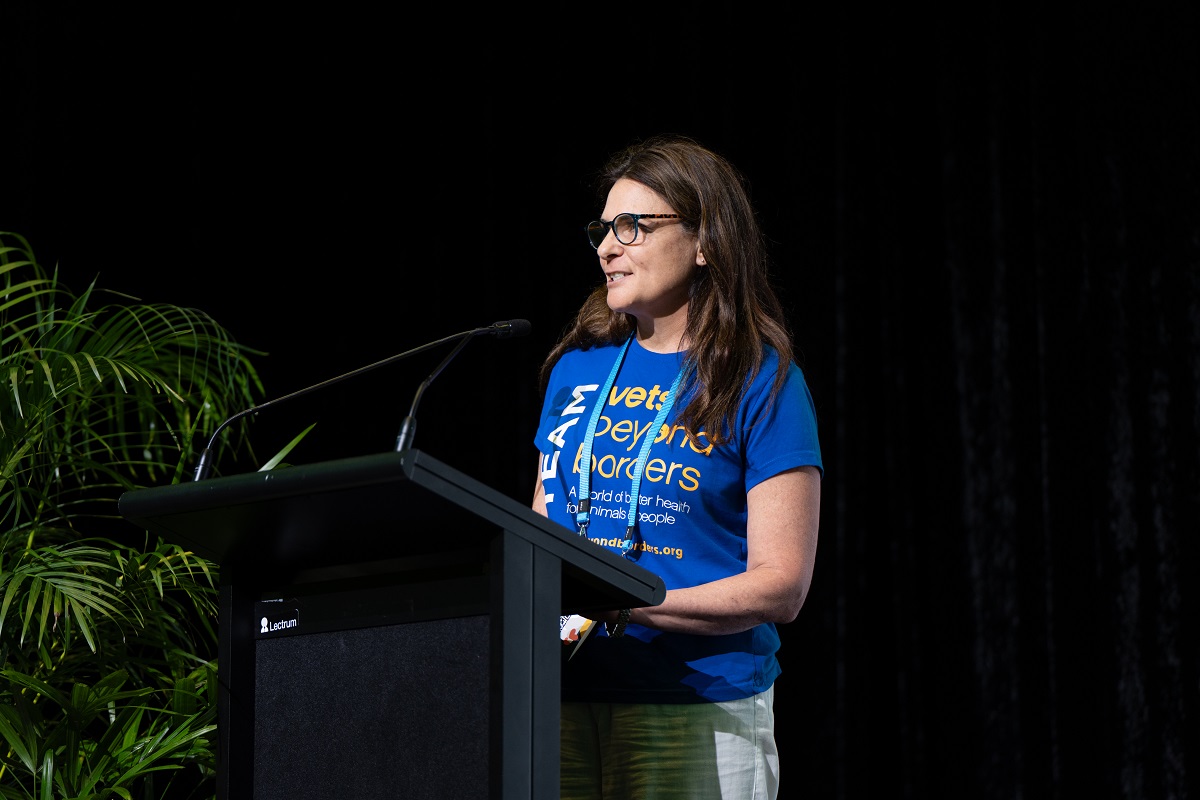Anne Lloyd-Jones, General Manager of Vets Beyond Borders (VBB), shares the organisation’s milestones, challenges, and vision for the future.
VBB has been dedicated to improving animal welfare across the Asia-Pacific for over two decades. Founded initially to address the critical issues of animal birth control and rabies prevention in India, VBB has expanded its mission and outreach, providing essential veterinary services to communities in need.
“Our main focus is providing experienced veterinary personnel to animal welfare groups throughout the Asia-Pacific to support them in their important work. That’s been our standard for the past 20 years,” explained Lloyd-Jones.
The initial VBB programs began in India, focusing on animal birth control and rabies eradication. Remarkably, their first target area has now achieved a rabies-free status, setting a powerful precedent.
“This program has made a significant impact,” Lloyd-Jones says, “and the area it began in is now completely rabies-free – a beacon of hope for animal welfare groups throughout India.”
This success has served as a model, inspiring similar programs in places like Vanuatu, where VBB focuses on population control through dog sterilisation.
Reflecting on notable achievements, Lloyd-Jones emphasises the long-term commitment required to address complex animal welfare issues.
“It’s not something you can solve overnight,” she explains. VBB has been steadily “chipping away at the problem of the free-roaming dog population,” replicating their initial successes throughout the Asia-Pacific with the help of dedicated volunteers.
VBB’s impact, she says, can be felt in every community they serve. Volunteers are continually dispatched across the region, where they not only provide immediate services but build sustainable structures to ensure long-term improvement.
VBB’s operations hinge on the tireless commitment of volunteer veterinarians and vet nurses. Recruiting these volunteers is an ongoing effort.
“We have quite a strong following on social media,” Lloyd-Jones explains. “We’ll put out notifications if we have vacancies in particular programs.”
Through social media, partnerships with organisations like the Petbarn Foundation, and word-of-mouth, VBB attracts volunteers for diverse regions, from the beaches of Fiji to the challenging conditions in rural India.

However, Lloyd-Jones notes that attracting volunteers to more remote or challenging locations can sometimes be difficult.
“People are understandably drawn to programs in places like Fiji with palm trees and lovely beaches,” she says. “But we want to expand within the Pacific, where there’s such a high need for veterinary services. A lot of islands have no veterinary care at all.”
According to Lloyd-Jones, one of the most pressing issues facing communities across the Asia-Pacific is population control of free-roaming dogs.
“So many things stem from that,” she explains. “There’s this great statistic about how just sterilising a certain number of dogs—if half are female—can prevent thousands of unwanted puppies.”
Beyond reducing the number of homeless animals, population control helps prevent disease, improves food security, and addresses safety issues. In Nauru, for instance, free-roaming dogs have occasionally bitten children and tourists, prompting government intervention through culling.
“If we can get in first and manage the population, we can prevent these kinds of measures,” says Lloyd-Jones.
VBB has established strong networks within the countries they serve, often working closely with local animal welfare groups.
“In Vanuatu, for example, we work with Sam’s Animal Welfare Association,” Lloyd-Jones explains. “We were invited by Biosecurity Vanuatu to get involved, which is fantastic. When governments invite us in, it opens doors and lets us show other countries what can be achieved with the right support.”
While VBB’s work is often temporary in nature, Jones is committed to ensuring the sustainability of their programs. The organisation collaborates with other veterinary groups from countries like Canada, the U.S., and New Zealand to maintain a continuous presence. Additionally, VBB provides training to local veterinarians through their Vet Train program, an initiative designed to build local veterinary capacity.
“We do webinars with specialist vets to help train local veterinarians, giving them skills that will benefit their communities long after we’re gone,” Lloyd-Jones says.
VBB operates with a lean team of just one and a half staff members.
“People get surprised,” Lloyd-Jones laughs. “Sometimes they send emails saying, ‘Can you get your marketing team on this?’ And it’s like—that’s me!”
Despite their small size, VBB’s impact is significant, thanks to an army of dedicated volunteers. “We’re making a huge impact because so many amazing people are willing to donate their time,” she says.
The dedication of these volunteers is inspiring. Many of them pay for their own flights, visas, and other expenses, though VBB now covers travel insurance to ensure their safety.
“It’s incredibly generous,” Lloyd-Jones says. “And we hear from volunteers who say the experience has rejuvenated their passion for the profession. Some come back completely inspired.”
Looking ahead, VBB aims to expand further into the Pacific. “We’re really looking at the Pacific,” Lloyd-Jones confirms. “If we can get the right support, we can do that.” In Australia, VBB runs a unique program called AVERT, a national database of vets and vet nurses who are on standby for emergencies such as bushfires, floods, or disease outbreaks.
With a database of over 2,600 trained professionals, VBB is prepared to mobilise assistance when disaster strikes.
“We had an incident earlier this year with an outbreak of lorikeet paralysis syndrome in New South Wales, and we sent vets to assist with that. So we do work within Australia as well,” she notes.
Despite its name, VBB’s work isn’t limited to overseas. They collaborate with organisations like the RSPCA and the Animal Welfare League in Australia to support animal health days and other events.
“With the right support, we’re confident we can keep expanding and making a meaningful difference in more communities across the Asia-Pacific,” says Lloyd-Jones.
To stay up to date on the latest industry headlines, sign up to the Pet Industry News e-newsletter.

